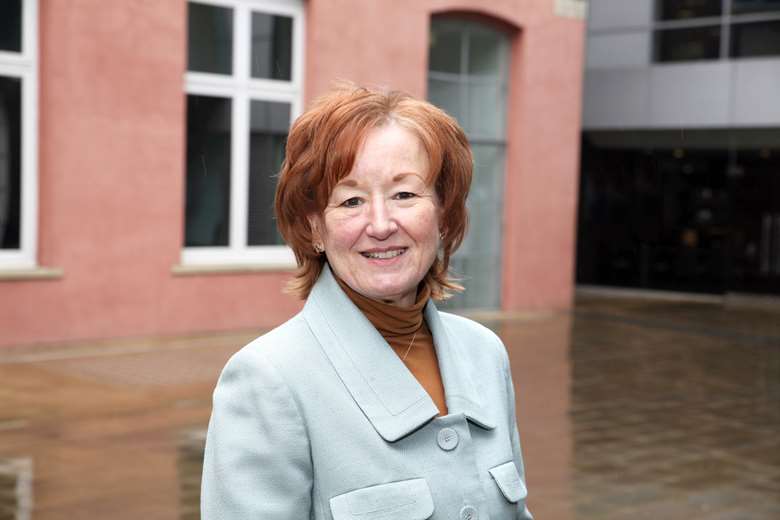The gentle agitator
Gabriella Jozwiak
Tuesday, March 19, 2013
Gabriella Józwiak talks to Deborah Lawson, general secretary of the union Voice

On assuming office, Deborah Lawson announced that one of her aims was to end the perception that Voice is not a “proper” trade union. The division between Voice and other unions stems from its no-strike constitution. It is also independent from the Trades Union Congress. The sentiment runs deep enough for Voice’s website to carry a “myth busters” section, which aligns doubts about the body with the existence of “unicorns and fairies at the bottom of the garden”. But even in times of huge changes to the education system, Lawson is adamant that strike action is an unnecessary course.
“Our members put the needs of pupils and learners paramount,” says Lawson. “They do not consider taking industrial action to be effective in the current climate.” Voice’s membership covers all education professionals, including nursery workers, school support staff and administrators, as well as teachers. They commit to following policies of negotiation and lobbying in place of striking. Lawson says this is better for them and for children. “They lose a day’s pay if they strike, and no-one can afford that at the moment,” she says. “The interruption to people’s learning impacts on what teaching they have to do for the rest of the week. That’s more acute now because everything is judged on exam results and targets. There’s so much to cram in.”
Lawson also suggests Voice’s strike-free position grants its members a more favourable reception from the government, which she suggests is “considering changes in terms of unions”. On cue, the Department for Education published new legal advice for schools on the same day Lawson spoke to CYP Now, along with a quote from schools minister David Laws that said industrial action was “unfair on pupils, parents and school leaders and it is increasing the workload of colleagues who are not participating in this unjustifiable action”. Lawson says periods of strike action result in membership growth for Voice. “We usually see a spike in membership when there’s industrial action, and we’re retaining them.”
Lawson is a far cry from the stereotypical ardent unionist. Elegantly dressed, with a calm manner, she offers only considered criticisms of the government. Saying that “political interference” has “eroded the status of professionals who deliver education”, is the full extent of her verbal condemnation. But beneath her perfectly matched outfit, she has an undertone that suggests a fighting spirit. She describes Education Secretary Michael Gove, who she has never met, as “determined”, shooting a glance that suggests a less complimentary opinion.
She has been involved in union activities since 1987 with both the Professional Association of Nursery Nurses and Professional Association of Teachers (PAT). These combined with Professionals Allied to Teaching in 2008 to create Voice. By this time she had already held the position of PAT national chairman in 2006 – the first non-teacher to hold this office. Voice is based in Derby and has about 30,000 members throughout England, Wales and Scotland, with a particularly strong contingent in its Midlands heartland. When asked why she wanted to become general secretary, she answers simply: “I felt I wanted to do more.”
She has been in post since October last year, but Lawson is yet to meet any of the ministers at the Department for Education. “I go to various meetings that I’m led to believe are normally chaired by ministers, but they’ve never been at any of them,” she says. Childcare minister Elizabeth Truss has also declined invitations to meet with Voice. “She said the issues we wanted to discuss were still the subject of consultation,” says Lawson.
As a National Nursery Examination Board-trained childcare provider, the DfE’s proposed childcare reforms are high on Lawson’s agenda. “There is no parity between those who teach within the statutory age range and those who teach in early years,” she says.
While supportive of proposals to improve the quality of early years providers, Lawson does not think the government’s plans to introduce two early years qualifications is the right strategy. “Early years teachers and early years educators are not going to be recognised as qualified teachers and they’re not going to be part of teachers’ pay and conditions,” she says. “If people have gone out, done the degree and actually taken the time to be able to get the training in the same way as a teacher, why shouldn’t that be recognised?”
Performance-related pay
Lawson’s concern about pay and conditions has increased since the government approved recommendations by the School Teachers’ Review Body to change pay systems in February. From September, teachers will no longer see their pay rise incrementally based on years of service, but have their wages linked to performance. Lawson is concerned the decision will have negative results for pupils.
“The erosion of pay and conditions will impact on the retention and recruitment of good teachers,” she says. “We are aware of some situations where older, more expensive teachers are leaving the profession, not always willingly,” she says, suggesting they have been pushed out of their jobs. “That could present a problem for the country in 10 or 15 years’ time because we’re go




